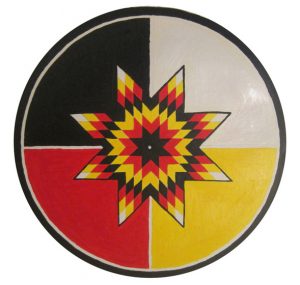Acknowledging Traditional Territory
First peoples have existed for thousands of years prior to the arrival of Europeans settlers. It has been their custom to acknowledge each other’s traditional territory, and this protocol still exist today. It is important to recognize that Frist Nations, Métis and Inuit have unique relationships with Canada. They hold sovereignty over their traditional territory and are diverse groups with their own histories and culture.
For example, my mother was born in Shoal Lake #4, whose territory extends between the Province of Ontario and Province of Manitoba. Shoal Lake #40 is part of Treaty 3 and of Ojibway heritage. It has been over 100 years since Canada expropriated Shoal Lake #40 reserve land and the City of Winnipeg built the aqueduct which displaced the community to a man-made island. It has been over 20 years since Shoal Lake #40 has been on a boil-water advisory. The boil water order was issued by Health Canada and it requires all community members to boil the water before consumption. When I speak at schools in Winnipeg to raise awareness, many students don’t realize the significate burdens that Shoal Lake #40 carries in providing Winnipeg with fresh water. In recent memory, nine people have died crossing the water or thin ice to access homes. Thankfully, after many years of advocacy and resiliency, in June 2019 Shoal Lake #40 will open their all-seasons road. This road will save lives and restore an economic future for the community.
Acknowledging Indigenous peoples’ territory is a small way of showing respect and recognition of Indigenous people. I encourage philanthropic organizations to reach out to Indigenous people in a respectfully way by including Elders and knowledge keepers to understand the traditional territory where their offices are located and work together in developing proper acknowledgements.
For example, the Association of Fundraising Professionals Manitoba Chapter at Winnipeg events acknowledges the Treaty one traditional territory of the Anishinaabe, Cree, Dene, Dakota and Oji-Cree nations and the homeland of the Métis. My sincere hope is that we can move beyond acknowledgments and together find meaningful ways to support the Truth and Reconciliation calls to action.
Sharon Redsky is AFP Inclusive Giving Fellow and development coordinator with Dakota Ojibway Child and Family Services.







